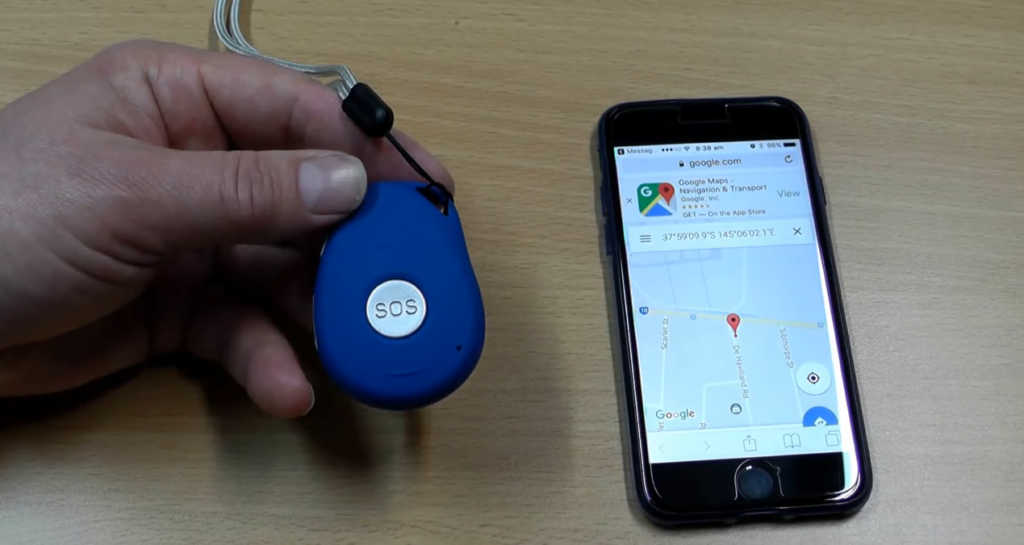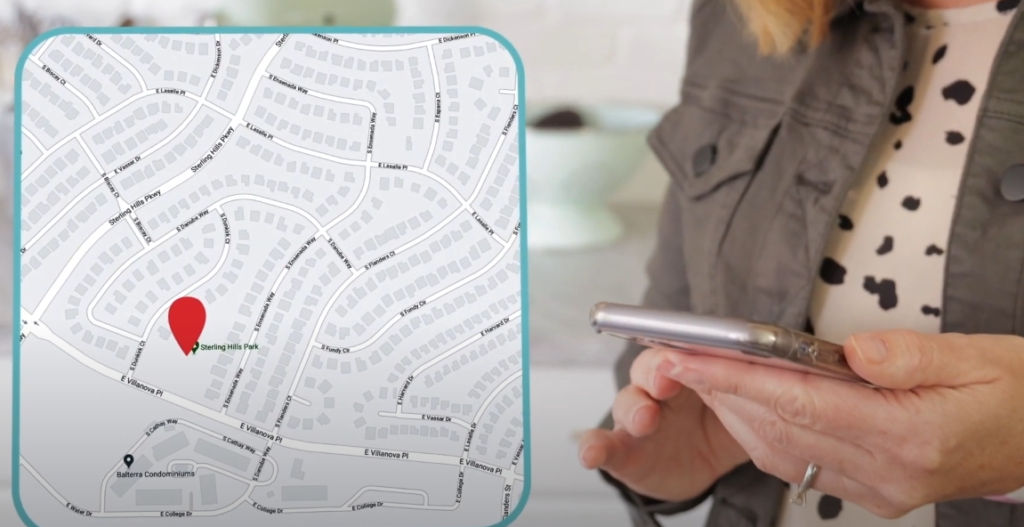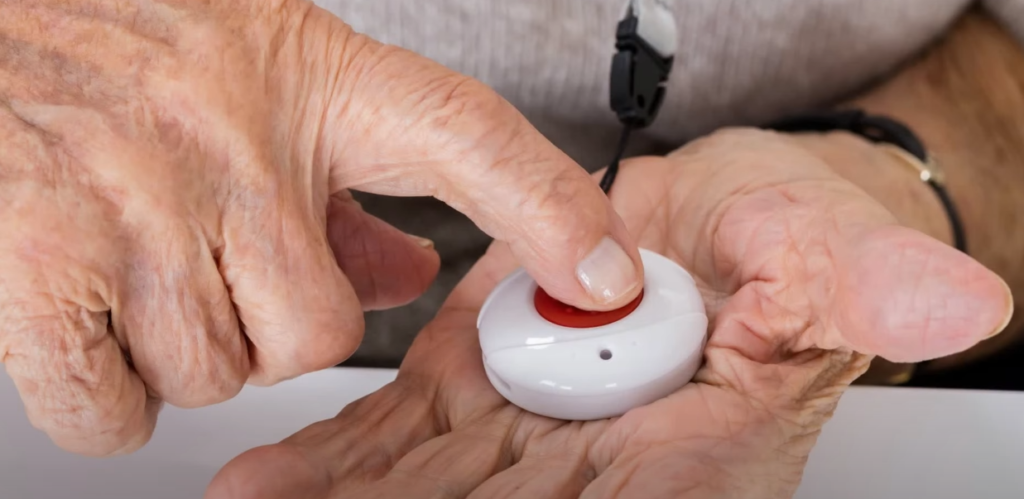Try to picture this scenario: You have an elderly loved one who lives alone, and you worry about their safety and well-being. They’ve experienced falls in the past and have underlying health conditions that require constant monitoring. As much as you want to be there for them, it’s impossible to be around 24/7. This is where GPS tracking in medical alert systems comes into play.
GPS tracking has revolutionized the way we keep our loved ones safe, especially those who are vulnerable to medical emergencies. It’s a game-changer in the healthcare industry, providing real-time location updates and instant alerts during emergencies. This technology has become an essential part of medical alert systems, giving seniors and those with chronic illnesses the freedom to live independently while staying connected to their loved ones and medical professionals.

In this article, we’ll explore the importance of GPS tracking in medical alert systems, its history, how it works, its benefits and limitations, and future implications. We’ll also look at various use cases where GPS tracking is particularly useful and provide insights into the impact it has on the healthcare industry. So, fasten your seatbelts and join us as we explore the world of GPS tracking in medical alert systems.
What is GPS Tracking in Medical Alert Systems?
GPS tracking in medical alert systems is a technology that allows real-time tracking of a person’s location using GPS satellites. This technology is integrated into medical alert systems to provide quick and accurate location information during an emergency.
When an individual presses the panic button on their medical alert device, GPS tracking technology immediately sends their location information to emergency responders and family members, enabling them to respond quickly to the emergency.
Importance of GPS Tracking in Medical Alert Systems
The importance of GPS tracking in medical alert systems cannot be overstated. This technology provides peace of mind to seniors and people with medical conditions, enabling them to live independently while knowing that help is just a push of a button away.
GPS tracking technology ensures that emergency responders can quickly locate the person in distress, even if they are disoriented or unable to accurately communicate their location. This technology has also been known to save lives by enabling swift response times during emergencies.
Brief History of Medical Alert Systems and GPS Tracking
Medical alert systems have existed for decades, with the first medical alert device invented in the early 1970s. These devices were initially developed to help seniors and people with chronic illnesses who live alone to call for help in an emergency. However, with the advancement in GPS technology, medical alert systems have become more sophisticated, allowing real-time location tracking and providing enhanced safety features.
GPS tracking in medical alert systems has become a game-changer, providing more accurate location information and enabling emergency responders to reach people in distress quickly.
GPS Tracking in Medical Alert Systems

GPS tracking technology uses a network of satellites to determine the precise location of a person or object. These satellites transmit signals to GPS devices, which then calculate the person’s location based on the time it takes for the signal to reach the device.
In medical alert systems, GPS tracking technology is integrated into the device, enabling emergency responders and family members to locate the person in distress quickly and accurately.
How GPS Tracking Works in Medical Alert Systems:
In a medical alert system, GPS tracking technology is integrated into the device, usually a pendant or wristband. When a person presses the emergency button on the device, the GPS technology sends a signal to the monitoring center, providing their location information.
The monitoring center can then alert emergency responders or family members and provide them with the person’s location information to facilitate a quick and accurate response.
Features and Benefits of GPS Tracking in Medical Alert Systems:
The features and benefits of GPS tracking in medical alert systems are numerous. Some of the key benefits include:
- Quick response times: GPS tracking enables emergency responders to locate the person in distress quickly, even if they are disoriented or unable to communicate their location.
- Accuracy: GPS technology provides precise location information, ensuring that emergency responders can find the person in distress quickly and accurately.
- Enhanced safety features: GPS tracking technology enables medical alert systems to provide enhanced safety features, such as fall detection and geo-fencing.
- Peace of mind: GPS tracking in medical alert systems provides peace of mind to seniors and people with medical conditions, enabling them to live independently while knowing that help is just a push of a button away.
- Cost-effective: GPS tracking technology is relatively inexpensive and can be integrated into medical alert systems without significantly increasing the cost.
Use Cases of GPS Tracking in Medical Alert Systems
Elderly Care:
GPS tracking in medical alert systems is particularly useful for elderly care. Many seniors prefer to live independently, but they may have underlying health conditions that require constant monitoring. GPS tracking technology in medical alert systems provides peace of mind to seniors and their families, knowing that help is just a push of a button away. Additionally, it enables caregivers to monitor the whereabouts of their loved ones, ensuring that they are safe and well.
Dementia and Alzheimer’s patients:
Dementia and Alzheimer’s patients may wander off and become disoriented, making it difficult for them to return home. GPS tracking in medical alert systems provides a way to quickly locate these individuals, even if they are unable to communicate their location accurately. This technology has been known to save lives by enabling swift response times during emergencies.
Children with medical conditions:
Children with medical conditions, such as epilepsy or diabetes, require constant monitoring to ensure their safety. GPS tracking in medical alert systems provides parents and caregivers with the ability to locate their children quickly in case of an emergency, providing peace of mind to both the child and their family.
Athletes and outdoor enthusiasts:
GPS tracking technology in medical alert systems is also useful for athletes and outdoor enthusiasts. These individuals may engage in activities that put them at risk for injury, such as hiking or skiing. GPS tracking in medical alert systems enables them to quickly call for help in case of an emergency, providing a higher level of safety and security during their activities.
GPS tracking in medical alert systems is useful for a range of individuals, including seniors, dementia and Alzheimer’s patients, children with medical conditions, and athletes and outdoor enthusiasts. It provides an added layer of safety and security, enabling quick response times and accurate location information during emergencies.

Challenges and Limitations of GPS Tracking in Medical Alert Systems
Battery life and charging:
One of the main challenges of GPS tracking in medical alert systems is battery life and charging. GPS tracking technology requires a constant source of power, and the battery life of the device can be limited. This can be problematic if the user forgets to charge the device regularly, as it may not be functional when needed. Additionally, frequent charging may be inconvenient for some users, particularly elderly individuals who may have difficulty using technology.
GPS Accuracy:
Another challenge of GPS tracking in medical alert systems is GPS accuracy. While GPS technology provides precise location information, it can sometimes be inaccurate in certain areas, such as indoors or in areas with tall buildings. This can make it difficult to locate the person in distress accurately, potentially delaying emergency response times.
Privacy concerns:
GPS tracking in medical alert systems also raises privacy concerns. Users may feel uncomfortable with the constant monitoring of their location, as it may infringe on their privacy rights. Additionally, there is a risk of data breaches, which could compromise the user’s personal and location information.
GPS tracking in medical alert systems has some challenges and limitations, including battery life and charging, GPS accuracy, and privacy concerns. It’s essential to consider these factors when choosing a medical alert system to ensure that it meets the user’s needs while also addressing their concerns regarding privacy and reliability.
Future of GPS Tracking in Medical Alert Systems
Advancements in GPS technology:
The future of GPS tracking in medical alert systems is promising, with advancements in GPS technology offering increased accuracy and reliability. GPS technology is continually improving, with newer models offering longer battery life, enhanced accuracy, and improved signal strength.
Future advancements may include more accurate indoor tracking, which would be particularly useful for elderly care facilities.
Integration with other health technologies:
GPS tracking in medical alert systems may also integrate with other health technologies, such as wearable devices or mobile apps. This integration would enable more comprehensive monitoring of an individual’s health and provide more accurate and timely alerts during emergencies.
For example, wearable devices could detect a sudden fall and trigger the medical alert system, sending the user’s location to emergency responders.
Potential impact on the healthcare industry:
The potential impact of GPS tracking in medical alert systems on the healthcare industry is significant. With an aging population, the demand for medical alert systems is expected to increase significantly. GPS tracking technology can help reduce response times during emergencies, enabling quicker medical interventions and reducing hospitalizations.
Additionally, with more comprehensive monitoring of an individual’s health, medical alert systems can detect early warning signs of health issues and provide timely interventions, potentially reducing the overall cost of healthcare.
The future of GPS tracking in medical alert systems is promising, with advancements in GPS technology and integration with other health technologies. The potential impact on the healthcare industry is significant, with reduced response times during emergencies and improved monitoring of individuals’ health potentially reducing healthcare costs. As GPS technology continues to evolve, the potential for its use in medical alert systems will continue to grow.
Bottom Line
GPS tracking in medical alert systems plays a critical role in healthcare, especially for elderly care, individuals with medical conditions, and athletes. It provides a sense of security and reassurance for users and their loved ones and can significantly improve response times during emergencies. With the aging population and increasing demand for healthcare services, the importance of GPS tracking in medical alert systems will only continue to grow.
There is a need for further research and development in GPS tracking technology to overcome the challenges and limitations of current medical alert systems. The healthcare industry can benefit from more accurate and reliable location tracking, longer battery life, and improved integration with other health technologies.
As the demand for medical alert systems continues to grow, it is essential to continue innovating and improving GPS tracking technology to provide the best possible care for individuals in need.
GPS tracking in medical alert systems offers numerous benefits and is crucial in the healthcare industry. While there are challenges and limitations, future advancements in GPS technology and integration with other health technologies offer a promising future for medical alert systems.
Continued research and development are essential to improve medical alert systems’ efficiency, reliability, and overall quality.
